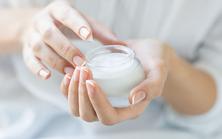New regulation allows third-party facilities to conduct testing

- the additional test requirements for certain products;
- how third-party testing facilities can receive accreditation to conduct tests in China; and
- how companies can use an online system to apply for testing services.
Companies will be required to test for skin phototoxicity and sensitisation – in addition to the currently required toxicological tests – on all ‘general’ or ‘non-special use’ cosmetics containing chemical sunscreen agents in volumes of ≥0.5% by weight. General use cosmetics are defined as those that do not contain high-risk ingredients. They will also have to carry out a sun protection factor (SPF) test for these products; previously this was only for products claiming such qualities.
Rinse-off, perfume and nail polish products are exempt from both these requirements.
“There is no detailed information in the rules as to why there has been an increase in the tests required for these products,” said April Guo of consultancy CIRS, although she suggested that it was for safety reasons.
According to the NMPA, companies must arrange for all newly registered or filed cosmetics to be tested in accordance with the new requirements before they can be placed on the market.
For cosmetics that have already been tested, they can submit the test results they have in order to register and market their products. But they must also submit a supplementary testing report for the newly required data when they renew the licence every four years.
Accreditation for third-party testing facilities
The rules also outline how third-party testing institutions can apply for accreditation to test cosmetics in China. The NMPA notified the WTO of its plans to allow this in February but it has not provided a date of implementation until now.
Qualified organisations will be able to provide safety and efficacy testing data to companies to support their cosmetics registrations if they meet the requirements, including:
- registering with the NMPA;
- accepting its inspections; and
- obtaining China Metrology Accreditation (CMA) certification.
A CMA certificate is the basic requirement for market access to provide inspection and testing services in China. All facilities must be based in the country.
The NMPA said the rules would help to standardise the registration, filing and inspection process for cosmetics – and ensure that it is “open and fair”.
Ms Guo said that allowing more third-party facilities to test cosmetics “will greatly speed up the progress of product launches and help companies avoid long queues for tests”.
The only option until now has been government-designated laboratories.
Ms Guo does not think there is a risk of a temporary backlog while the new testing facilities undergo accreditation. “Because both the previously qualified labs and the new labs will be able to complete the application process during the transition period [from now until 1 November], it will not take long to apply for the new qualification,” she said. This is because they can submit information via the online system to demonstrate that they meet the basic requirements.
Online test procedures
From 1 November, companies must use an online process to apply directly to the testing institutions to conduct the tests they require. Once the institution has completed the tests, it will upload the results to the system. These will not be publicly accessible.
Ms Guo said that companies could already use an online filing system but now all information relating to test procedures will be online.
